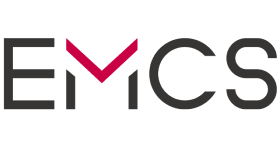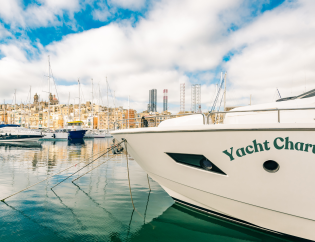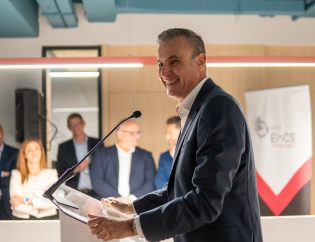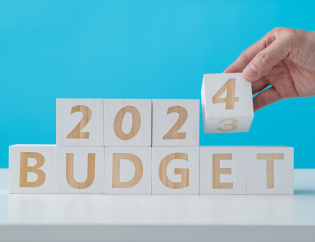An Overview of the 2023 Budget as prepared by Silvan Mifsud, Director EMCS.
Government forecasts that the budget deficit will flow until 2025. The public debt level is forecast to increase from over €8 billion ( 2021) to around €12 billion (2025), with a forecast annual deficit of almost €1 billion for 2022 and 2023. This means that the annual deficit to GDP rate is expected to remain above the annual 3% rate until 2024, with this being around 4% - 5% in 2023 and 2024.
The forecast is that public debt will remain below 60% of GDP, as GDP is forecast to grow from just over €16 billion in 2022 to almost €20 billion in 2025.
It is interesting to note, that last year, the Government forecast an annual public deficit to GDP rate of 5.6% for 2022, which will now likely stand at 5.8%. However, a closer look at the figures shows that this is due to a higher GDP level for 2022, which is forecast to be just over €16 billion, instead of €15 billion as forecast last year. This means that public deficit in 2022 is forecast to be €948 million against the €850 million forecast last year. If the GDP level had not increased by about €1 billion in 2022 over what was forecast last year, the annual public deficit to GDP rate would have been greater.
GDP growth is expected to be 6% in real terms in 2022 and this growth is expected to be lower in 2023 at the level of 3.5%.
Employment is forecast to increase by 3.4% in 2023 and a lower rate of inflation 3.7% as the increase in prices is expected to the more moderate next year.
A subsidy of over €600 million will be allocated to absorb the increase in price of energy and cereals. This means an expense of €70,000 per hour and almost 10% of the annual public expenditure.
Below is a summary of various measures announced in the budget speech:-
Social Measures
- In 2023 Government will increase the children allowance by €90 for each child. This measure will affect 41,100 families with 62,000 children, an added expenditure of €5.6 million.
- 80,000 individuals or 37,0000 families will also get additional COLA.
- Pensions will be increase by €12.50 per week plus COLA. This means that each pensioner will see an annual increase of €650 in their pension. About 100,000 pensioners will benefit which will cost the Government some €65 million.
- The COLA increase will be of €9.90 per week in 2023, for all employees.
- The Carers Grant for parents caring for a child with disability and therefore cannot work, will increase from €500 to €4,500 per year.
- A €10,000 grant to repay loans, to be given over 10 years, to first time buyers for property under €500,000. This measure will apply for property bought after 1st January 2022.
Labour Market & Training
- The Tax refund that was introduced in recent years, will be extended to 2023, and will be between €60 and €140 per person.
- Pensioners who keep working beyond retirement age will see that 20% of their pension income will not be considered as taxable income in 2022 (year of assessment 2023). This will increase to 40% in 2023 (year of assessment 2024). This measure will cost €27 million and 17,000 pensioners benefit from this.
- A new laptop is to be given to each student in the 7th grade as from next scholastic year.
- €10 million will be assigned to various training schemes similar to the “Investing in Skills” scheme.
Economic Incentives
- A one stop shop for start-ups will be launched next year, under the brand “Start in Malta”.
- From 2023, cash grants of about €40 million will be offered. These grants are linked to investments targeted toward SME businesses under the "Business Enhance" Scheme, which is EU funded.
- Malta Enterprise will double the financial assistance in the form of cash grants for those Maltese companies embarking on digital projects that are sustainable. The grant will cover 50% of the eligible investment the maximum being €100,000.
- Maltese companies will also see tax credits doubled to a maximum of €40,000, when investing in projects that focus on reducing energy and water consumption, increase efficiency, reduce waste and utilize fewer material resources.
- The concession for Family Business benefitting from a reduction in transfer duty from 5% to 1.5% when transferred "intervivos" will be extended once more.
- The rent assistance for greater warehousing will be extended and increased to €50,000 per year from €25,000 per year. The period during which businesses can benefit from this scheme has been doubled from 3 year to 6 years.
- A new incentive is being worked with the Gozo Tourism Association to attract more tourists to Gozo during the winter months.
- A business plan in relation to AirMalta was presented to the EU commission, for evaluation. Difficult decisions need to be taken to ensure Malta has a national airline that operates without financial losses.
- The scheme for shops that are presently rented or leased out from Government (Lands), outside of Valletta, will be opened once again, with the aim of giving a 45 year lease.
- A large portion of the EU's RRF Fund will be allocated to digitalisation – a €10 million investment will be made in the judicial sector and €6 million to the maritime register.
Sustainable Development
- The schemes offering reduced stamp duty for first-time buyers, second-time buyers and property bought in Gozo, will be continued.
- A major shift in the local bus fleet to electric vehicles.
- The financial assistance for new electric cars will be continued an estimated €11,000 or €12,000 when scrapping another vehicle.
- The grants for plug-in hybrid were expended by the end of May 2022. Anyone who ordered a plug-in hybrid car, after May 2022, with an expected delivery in 2023, will be eligible to the €11,000 grant.
- The financial grant for scrapping old cars will remain €2,000.
- Exemptions on registration tax will remain, electric and plug-in hybrid cars will continue to be exempt from paying the annual licence fee.
- Discussions on a Gozo Fast Ferry service are being held with the EU Commission on a 2-year public service agreement.
Green Economy
- Incentive schemes are being triggered for the installation of solar panels and energy conservation batteries, heat pump water heaters and the restorations of old wells. A 8MW feed-in tariff will be allocated for a feed-in tariff for solar photo voltaic cells at home, whilst extending this feed-in tariff for 20 years.
- Some 1,200 electric charging points for electric cars will be installed by 2024, a top up on the current 340 charging points.
- A Multi-Material Recovery Facility (waste) will start operating from Ħal Far in 2023. Next year, a €50 million investment, will be directed toward a new Organic Processing Plant.
